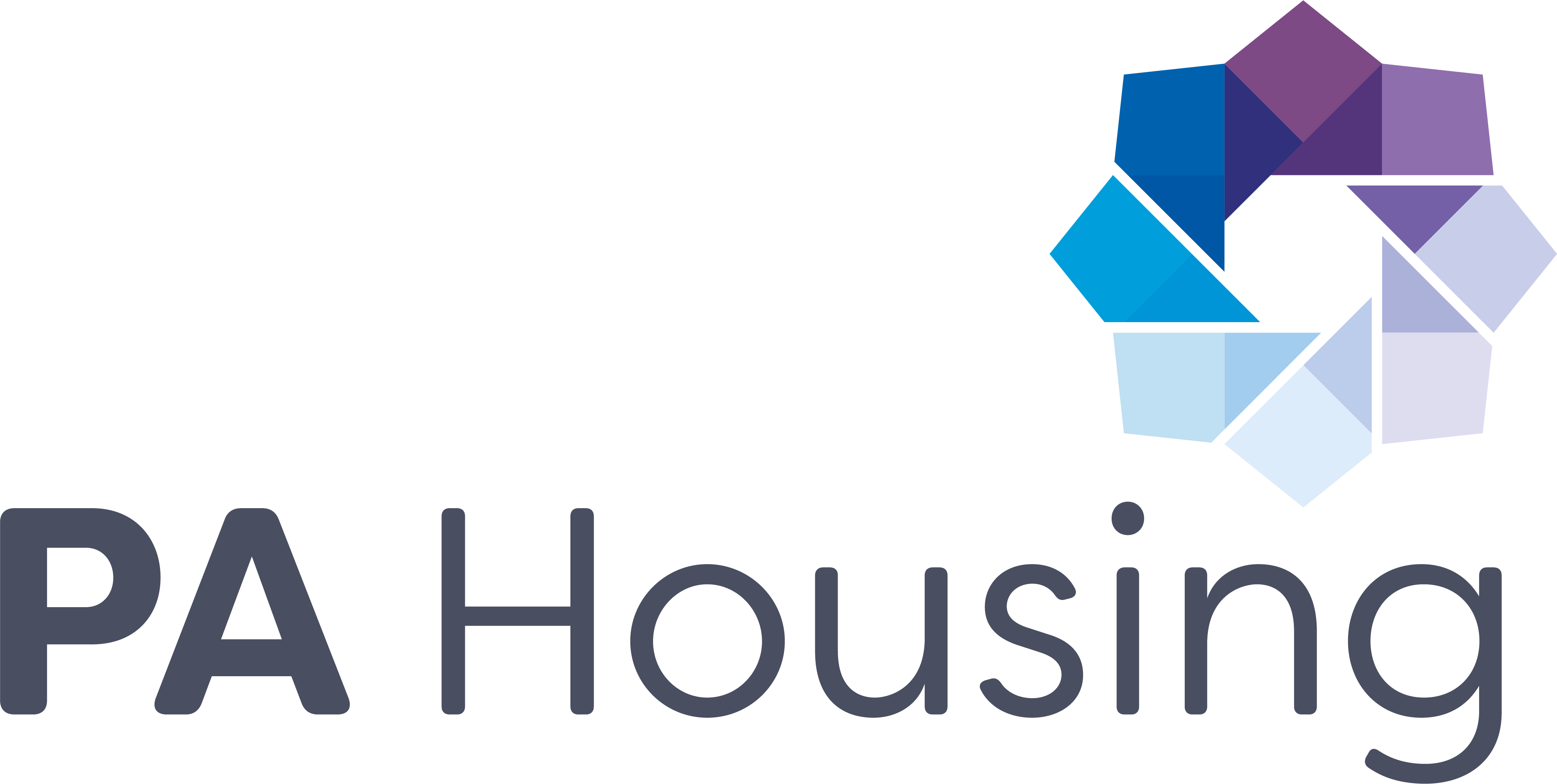Complaints was chosen as a topic to be reviewed due to feedback on the high level of complaints, the number of complaints escalating to stage 2 when it could’ve been prevented, and the timeframes in which complaints were being dealt with.
The Service Improvement Panel (SIP) members were recruited through recommendations from teams within PA who identified residents who at the time had an active complaint or who have been involved with residents, including one Resident Assembly member.
Meetings
The Complaints SIP ran from September - November 2024. The SIP held weekly meetings that involved:
-
Scoping out the key focus areas
-
Requesting information from relevant teams
-
Reviewing policies, procedures, workflows and breakdowns of relevant job roles
-
Conducting interviews with members of the Complaints team
Once they conducted all interviews, the SIP was able to start mapping out the report from the information they had reviewed.
The SIP met individually outside the sessions to develop the report. They worked closely with PA housing facilitator to ensure they had all the information needed to complete the report and final recommendation.

The report
Once the SIP had produced a draft of their report they met with the Director of Business Improvement, Kimberley Ellis, and other PA directors to present their recommendations, make sure the recommendations were reasonable and agree timeframes to implement the agreed recommendations.
To support the work of the SIP, the supporting Resident Involvement Specialist developed a recommendations tracker. The tracker is reviewed by the Resident Assembly monthly to ensure we are implementing the recommendations within the agreed timeframes.
Read the recommendations
Recommendations from the SIP:
- Dedicated Complaints Team: Form a specialised team solely focused on handling complaints. This ensures that complaints are prioritised and dealt with promptly.
- Automated Acknowledgements: Implement an automated system that immediately acknowledges receipt of a complaint. This can be a first step in showing residents their issues are being taken seriously.
- Performance Metrics: Establish clear performance metrics for response times and regularly review these metrics to ensure goals are being met.
Agreed Actions:
- Root Cause analysis training will be incorporated into future training plans for the Complaints team.
- The newly established Complaints Business Improvement Team will prioritise relationship rebuilding and lessons learned, ensuring complaints lead to meaningful improvements.
Recommendations from the SIP:
- Root Cause Analysis Training: Train staff in root cause analysis to identify and address the underly in issues, not just the symptoms.
- Resident Involvement: Involve residents in the resolution process by seeking their input on proposed solutions, ensuring the outcomes meet their needs.
- Post-Resolution Follow-Up: After resolving a complaint, follow up with the resident to ensure the solution was effective and gather feedback to improve future responses.
Agreed Actions:
- Root Cause analysis training will be incorporated into future training plans for the Complaints team.
- The newly established Complaints Business Improvement Team will prioritise relationship rebuilding and lessons learned, ensuring complaints lead to meaningful improvements
Recommendations from the SIP:
- Communication Protocol: Develop a clear protocol for communication that includes regular updates and transparent timelines for resolution.
- Resident Portal Enhancement: Enhance the resident portal to allow for easy tracking of complaint status and direct communication with the complaints team.
- Feedback Channels: Establish multiple feedback channels, including surveys and suggestion boxes, to continually gather resident input on the complaint process.
Agreed Actions:
- PA will look to strengthen governance and framework management within the complaints team, ensuring compliance with regulatory and policy standards
- Ongoing development of the MyPA platform will enhance self-service capabilities, ensuring complaints and other requests are efficiently captured and handled (Implementation: 31 March 2026).
- Tenant Satisfaction Measures (TSMs) will continue to capture annual feedback on the complaints process, enabling us to assess and improve resident satisfaction (Ongoing – Every September).
Recommendations from the SIP:
- Comprehensive procedures: Develop detailed procedures that outline every step of the complaint handling process.
- Regular Training Sessions: Conduct regular training sessions to ensure all staff are familiar with the Standard Operating Procedures and understand the importance of following them.
- Internal Audits: Perform periodic internal audits to ensure compliance with SOPs and identify areas for improvement.
Agreed Actions:
-
Two external audits have already highlighted procedural failures. In response, we will develop and publish detailed complaint-handling procedures, specifying roles, responsibilities, and processes to complement the existing policy.
-
PA will be developing a training matrix to ensure Complaints staff are fully trained on procedures.
-
Internal audit reviews will be conducted regularly as part of the internal audit framework to monitor adherence and drive continuous improvement (Ongoing).
Recommendations from the SIP:
- Proactive Maintenance: Schedule regular maintenance and inspections to identify and resolve potential issues before they escalate into formal complaints.
- Data Analysis: Use data analytics to identify patterns and predict potential problems, allowing for proactive intervention.
- Resident Outreach Programs: Implement resident outreach programs where staff regularly check in with residents to address concerns before they become complaints.
Agreed Actions:
-
Proactive Maintenance: Asset Management surveyors conduct stock condition surveys every five years to inform proactive maintenance programs, ensuring properties meet the Decent Homes Standard. Additionally, the Neighbourhood team carries out regular inspections (weekly, quarterly, or bi-annually depending on property type) to identify health and safety concerns and repair needs. Residents are invited to accompany staff on estate inspections.
-
Data Analysis: The Asset Management Data team uses analytics to identify properties that fail to meet the Decent Homes Standard or energy efficiency targets, enabling proactive actions to improve these homes and ensure safety, soundness, and comfort.
-
Resident Outreach: Resident-facing teams engage regularly with residents through methods such as drop-in sessions, scheme meetings, door knocking, and appointments for building surveys. The aim is to resolve issues at the first point of contact and prevent escalation.
Recommendations from the SIP:
- Case Ownership: Assign a specific case owner for each complaint who is responsible for overseeing the resolution process from start to finish.
- Accountability Reports: Implement accountability reports that track the progress and outcomes of complaints, ensuring that no issues fall through the cracks.
- Performance Reviews: Include complaint handling as a key performance indicator in staff reviews to reinforce the importance of accountability.
Agreed Actions:
-
Case Ownership: This process is already established as a requirement under the Complaint Handling Code.
-
Accountability Reports: Starting May 2025, all complaints will be recorded in the housing management system, allowing better tracking and oversight of complaints from start to finish.
-
Performance Reviews: Complaint handling will be included as a KPI in staff performance reviews to reinforce accountability across the team.
Recommendations from the SIP:
- Clear Escalation Path: Develop a clear and simplified escalation path that is easily understood by both residents and staff.
- Timely Escalation: Set strict timelines for escalation and ensure that higher-level management is involved quickly when necessary.
- Resident Support: Provide residents with support and guidance on how to escalate their complaints if they feel their issues are not being addressed adequately.
Agreed Actions:
-
Clear Escalation Path & Timely Escalation: The Complaint Handling Code already outlines a clear process and timeline for escalation, which we are required to adhere to. Performance against this process is reported annually as part of our self-assessment to the Housing Ombudsman.
-
Resident Support: Guidance on how to escalate complaints is provided on our website. Additionally, escalation instructions are included at the end of each complaint response letter, ensuring residents know how to proceed if they are dissatisfied with the outcome.
Recommendations from the SIP:
- Feedback Loop: Create a feedback loop where resident input is systematically reviewed and used to inform improvements in the complaint handling process.
- Resident Advisory Board: Establish a Resident Advisory Board that meets regularly to discuss common issues and provide insights on how to improve services.
- Regular Feedback Surveys: Conduct regular surveys to gauge resident satisfaction with the complaint handling process and identify areas for enhancement.
Agreed Actions:
-
Feedback Loop & Resident Advisory Board: We have a robust resident involvement framework that ensures residents are actively involved in shaping our services. Service Improvement Panels review specific service areas and make recommendations to drive improvements, which are implemented operationally. These insights, including recurring feedback and suggestions, are also used to inform strategic decisions and ensure that long-term goals align with residents' needs and concerns.
-
Regular Feedback Surveys: The Tenant Satisfaction Measures (TSMs) collect annual feedback regarding the complaints process, allowing us to make both operational and strategic improvements. The insights from these surveys help guide day-to-day operational decisions and also shape our long-term strategies for improving the service, ensuring that we are consistently improving in line with resident expectations and priorities.
Recommendations from the SIP:
- Leadership Commitment: Ensure that leadership demonstrates a strong commitment to resident
satisfaction through actions and policies. - Resident-Centric Culture: Foster a culture that values resident feedback and prioritises their needs in decision-making processes.
- Incentive Programs: Develop incentive programs that reward staff for exceptional service and effective complaint resolution, reinforcing the importance of resident satisfaction.
Agreed Actions:
-
We have been on a two-year journey to shift the culture within PA towards a resident-centric approach. The aims set out in our Corporate Plan and Enabling Strategies ensure that residents are at the heart of everything we do, guiding both our operational and strategic efforts.
-
A colleague recognition program is already in place to celebrate colleagues who go above and beyond their usual responsibilities, ensuring exceptional service and effective complaint resolution are consistently acknowledged and rewarded.
Get involved today!
If you're interested in getting involved in future SIP reviews, register your interest by completing the form or call us on 0300 123 2221.




